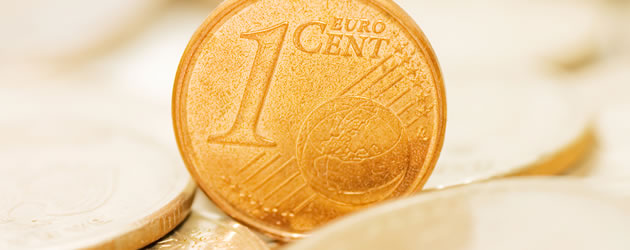The Euro to Pound Sterling (EUR/GBP) exchange rate was trading in a tight range on Monday as concerns over the Greek bailout situation and a disappointing German trade report were countered by data showing that investor sentiment in the Eurozone hit a seven year high in March.
The Euro to Pound Sterling (EUR/GBP) exchange rate was trading in the range of 0.721
Data out of Germany, the Eurozone’s largest economy showed that the nation’s trade surplus narrowed in the first month of the year. German exports were shown to have fallen by 2.1% after rising by 2.8% in the preceding month. Imports meanwhile dropped by 0.3% compared to the preceding month’s fall of 0.7%.
Economists had been forecasting for a fall of 1.2% in exports and a 0.6% rise in imports. The trade balance came in at €19.7bn ($21.38bn) from €21.6bn in December compared to a market consensus of €21.1bn. The current account balance dropped to €16.8bn from €25.6bn.
Following the release of the data, the Euro softened.
Grexit Fears Remain
Over the weekend attention turned back to Greece where the Syriza led government warned that the nation could hold a referendum or even stage early elections if its bailout proposals are rejected by the European Commission. A rejection of the plans is looking likely after they were said to not go far enough.
A number of leading economists are warning that the threat of a Greek exit from the Eurozone remains high and that a ‘Grexit’ will create significant instability in the European economy. German MP Peter Ramsauer said that Greece would be better off if it should leave the single currency.
‘By leaving the Eurozone, as finance minister Schauble has suggested, the country could make itself competitive again from a currency perspective with a new Drachma. This would provide Greece worth a great opportunity to renew itself economically and administratively, making itself fit again to return to the Eurozone from a position of strength.’
Investor Sentiment Hits 7-Year High
Losses for the Euro were restrained after the publication of a report by market research group Sentix showed that investor confidence in the currency bloc climbed to its best level since August 2007.
The index of investor sentiment climbed to a reading of 18.6 in March, up from February’s figure of 12.4. Economists had been forecasting for the index to rise to a reading of 15.0.
Volatility for the EUR/GBP exchange rate is expected throughout the week as the European Central Bank announced that it had launched its quantitative easing programme.



